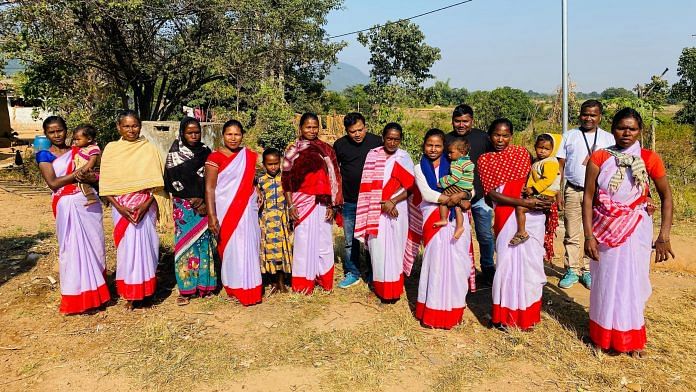It took two goats and a kitchen garden for Anjani didi to make the leap from ultra poverty to a life where she could buy new clothes for her two children. Today, the 23-year-old tribal woman from Simaidhi village in Lohardaga district, Jharkhand, takes pride in feeding her family fresh vegetables, meat and milk—a far cry from the stale rice and chutney they used to subsist on three years ago.
And all it took was a nudge.
Anjani didi is one of the beneficiaries of Bengaluru-headquartered The Nudge Institute’s ‘End Ultra Poverty’ programme. The initiative aims to empower 1,200 women in three of Jharkhand’s poverty-stricken districts—Lohardaga, Latehar and Gumla.
In Anjani’s hamlet alone, there are eleven didis who are only now slowly realising that they too can dream of a brighter future.
“Earlier, we used to go to the tea gardens in Tamil Nadu. We worked 10 hours per day for Rs 200. It was a nightmare. There were days when we didn’t have food to feed our children. Now, life is a little better,” says Anjani, who got married at the age of 15. There are no chairs or cots in her mud house, but she spreads a cloth mat on the floor for visitors.
Since 2019, The/Nudge Institute has helped as many as 400 women become self-sufficient. And to celebrate this milestone, all 400 women will be travelling to the state capital, Ranchi, on 7 December to meet Chief Minister Hemant Soren and share their stories.
Some are nervous, others are excited, but everyone is determined to go to Ranchi. They all have a story to tell.
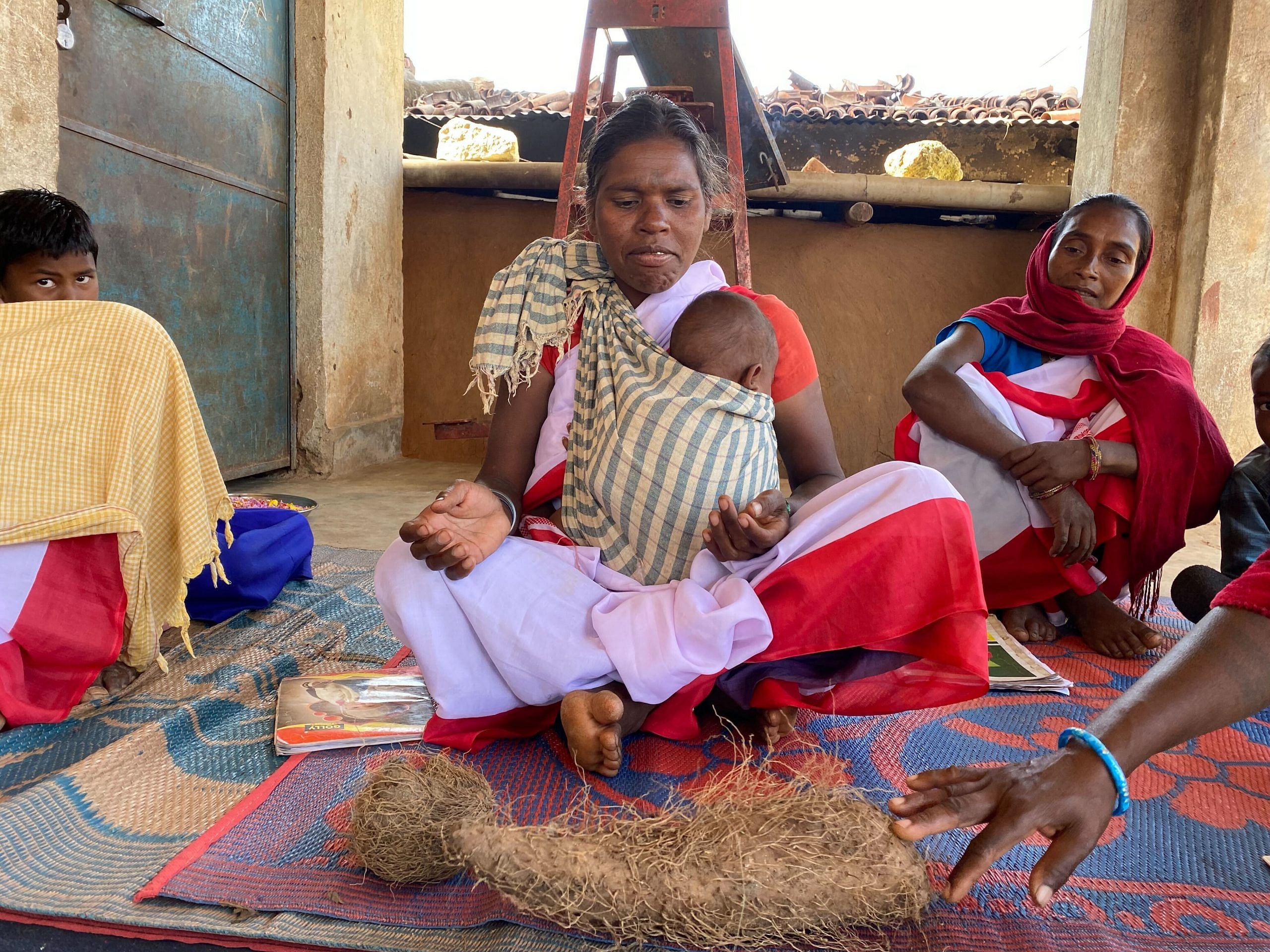
Also read: ‘Want to study’ — Jharkhand tribal woman who was ‘kicked, tortured, choked’ by BJP woman leader
Building trust wasn’t easy
Though the women in the hamlet were living in abject poverty, they did not believe in taking hand-outs, and were wary of strangers knocking on their doors with promises of upliftment.
They had been deceived too often in the past, said 31-year-old Srikhanta Kumar Routa, who heads the programme in Jharkhand and has been working with the institute for the past four years. He quickly learned that trust had to be earned.
“They think that we will give them money and then make them work. Initially, they used to send us away but gradually we gained their trust and started working with them,” Srikanta said.
Nudge works with governments, markets, and civil society to help the ultra poor by generating self-employment opportunities. The organisation gives the families some money to ensure food security — Rs 3,600 as consumption support grant and Rs 17,500 as livelihood support grant in two tranches for any of the sustainable livelihood activities such as vegetable cultivation, livestock rearing or small business planned by the women.
But that is just a temporary solution. The main goal is to teach them to farm and raise livestock.
“This requires regular hand holding and guidance,” said Srikanth, and that was how trust was slowly built. The people that The Nudge Institute deployed on the ground were in touch with the families, teaching them how to sustain themselves. Their persistence and constant presence paid off, and they were slowly accepted as members of the close-knit community.
“At first we thought they had come to cheat us. So we sent them away but they kept coming back, and we started talking,” says Savita Devi. In a bright yellow sari, she surveys the hamlet. Her endeavours have been a success. Today, she has a herd of 10 goats and earns Rs 30,000 annually selling potatoes, tomatoes and chillies.
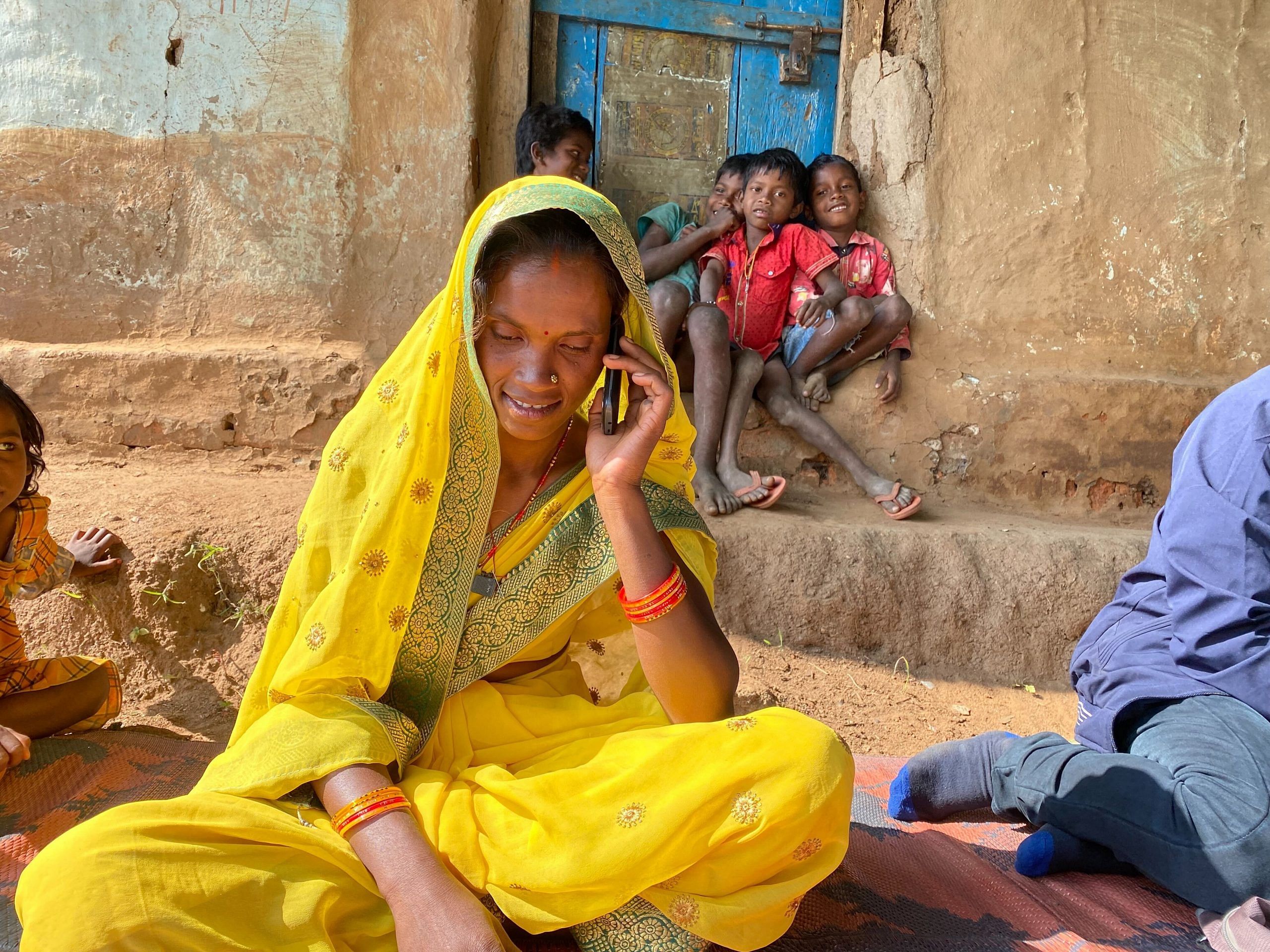
Some women took a small plot of land on lease. while a few owned land but did not know how to harvest crops. Many are growing vegetables in their backyards, which have now become kitchen gardens.
There was a time when Gudiya didi’s husband used to chase Nudge members and volunteers away. “But now you are clicking pictures with him,” said 30-year-old Gudiya to her husband, pointing to Sujit who is part of the programme and keeps track of all the beneficiaries.
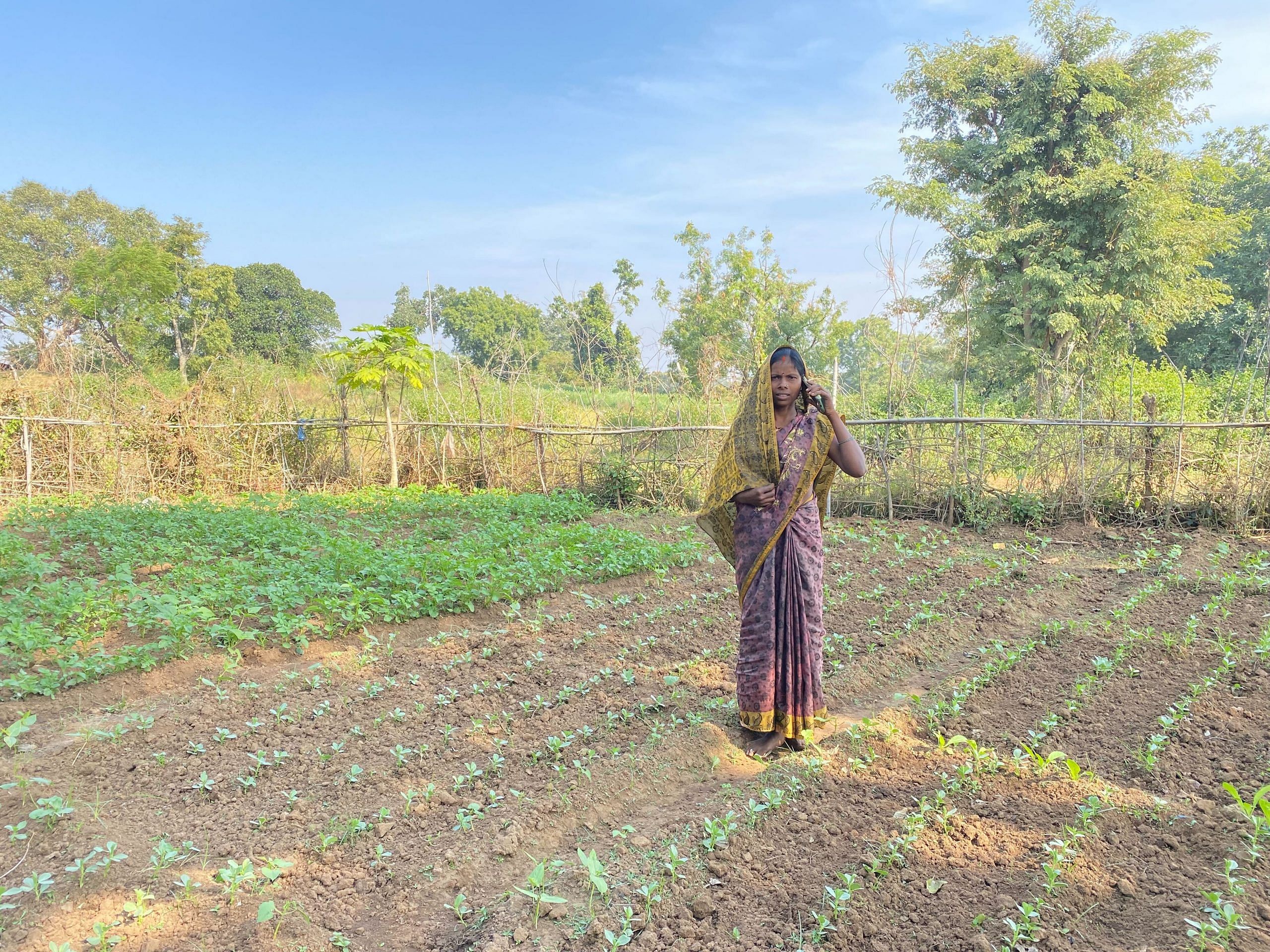
Also read: Ramayan to Mahabharat, what ancient Hindu texts teach us about honouring tribals
Changing lives in Jharkhand
Jharkhand is India’s second most poorest state, according to the Niti Aayog, with 42.16 percent of the state’s population living in ultra-poverty. The lack of land or livestock compounds the problem and most households find it a challenge to eat two meals a day. Describing the challenge, The Nudge Institute says on its website: Families in Jharkhand “are socially excluded, financially excluded, do not have access to predictable labour and income, nor are they able to access health, government or community support programs.”
The tribals living in remote areas of Jharkhand have neither dreams nor big desires. Questions on what they want were met with silence.
But change has already come to the community.
Babita Devi, who lives in Parihaya hamlet in Damodar village near Latehar district, wants her son to have education. She gave birth less than a week ago, but is already planning his future.
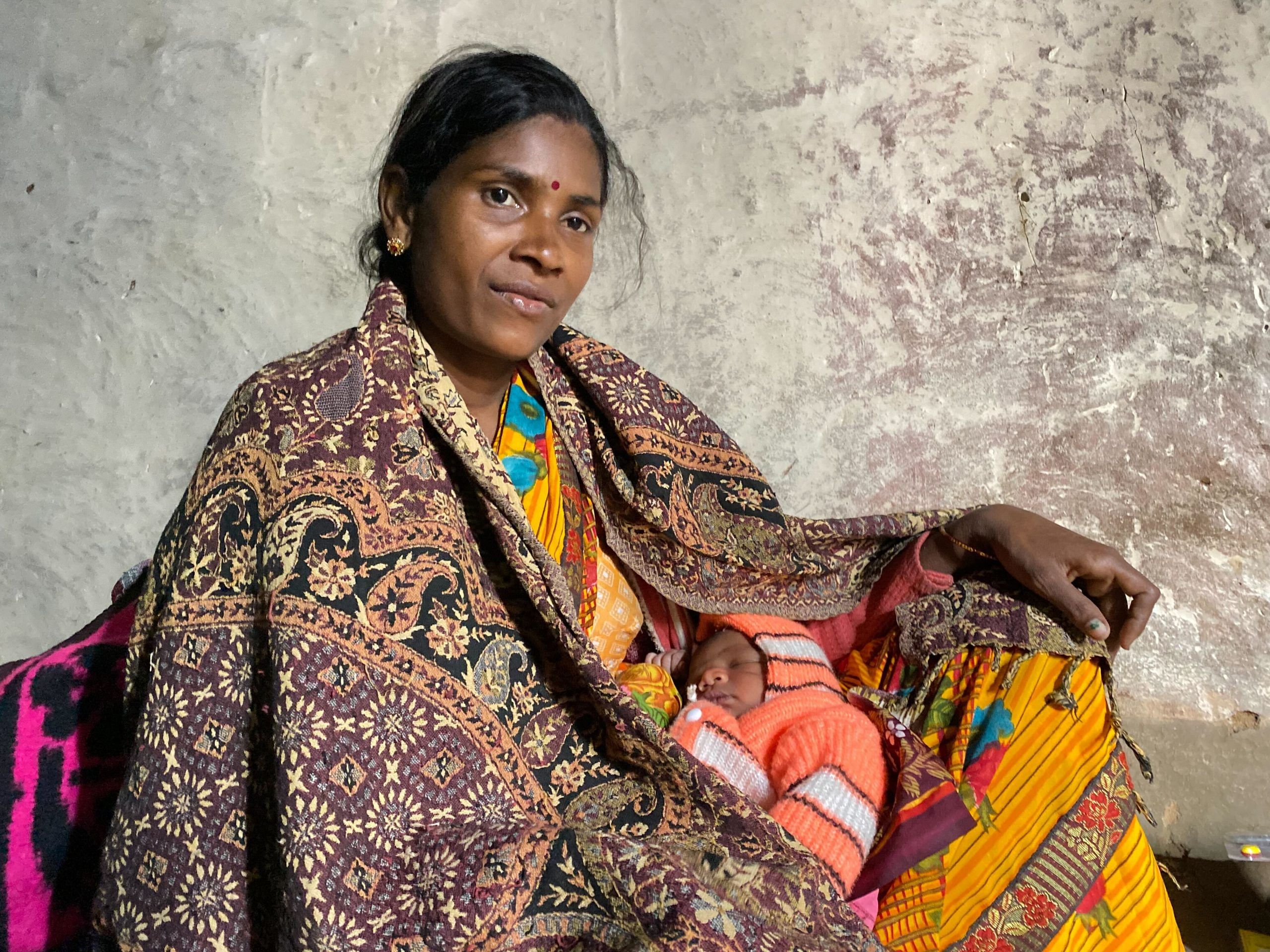
“This year I earned Rs 18,430 selling vegetables,” she said. Ever since she and her husband took up animal husbandry and started growing vegetables on leased land, they no longer have to seek daily work at the “bhatta” or kiln where they make bricks. “The cycle of going to bhatta has been broken. We can now focus on educating our children,” said Babita’s husband.
The fabric of their society is also changing for the better. Villagers say that there are fewer cases of domestic violence, and the women have become more confident now. They’re also learning to deal with local officials.
“We were facing problems with water, so we went to the BDO [block development officer] and now there is a water tank in our hamlet. It’s not enough but it’s helpful,” said 30-year-old Arti, a resident of Parihaya hamlet in Damodar village near Latehar district.
Experiencing the substantial change in the community inspired us to take forward more dedicated interventions to target ultra-poor families. Now, we are implementing a programme called UPAJ (Ultra-Poor Graduation Approach in Jharkhand) in partnership with The Nudge Institute,” said Suvakanta Nayak, lead officer of Jharkhand State Livelihood Promotion Society in the state’s rural development department.
The official added: “This programme targets 4,000 ultra-poor families in Jharkhand whom we will support for 36 months with a consumption support grant, livelihood support grant, facilitating access to entitlements, and weekly coaching. The technical and managerial support that we are receiving from The/Nudge is commendable. We hope to scale up this approach across the state. We plan to cover another 1,00,000 ultra poor households to come out of extreme poverty in Jharkhand.”
The Nudge Institute CEO Atul Satija wants the Jharkhand government to enable the State Rural Livelihood Missions to implement this programme targeting ultra poor across the country.
Prompted by the success in Jharkhand, The Nudge Institute is now planning to launch the programme in Rajasthan.
“The situation will be different there so we will be going there with a different approach,” said Srikanth, who will move to Rajasthan for a few months to get the ball rolling.
(Edited by Prashant)


